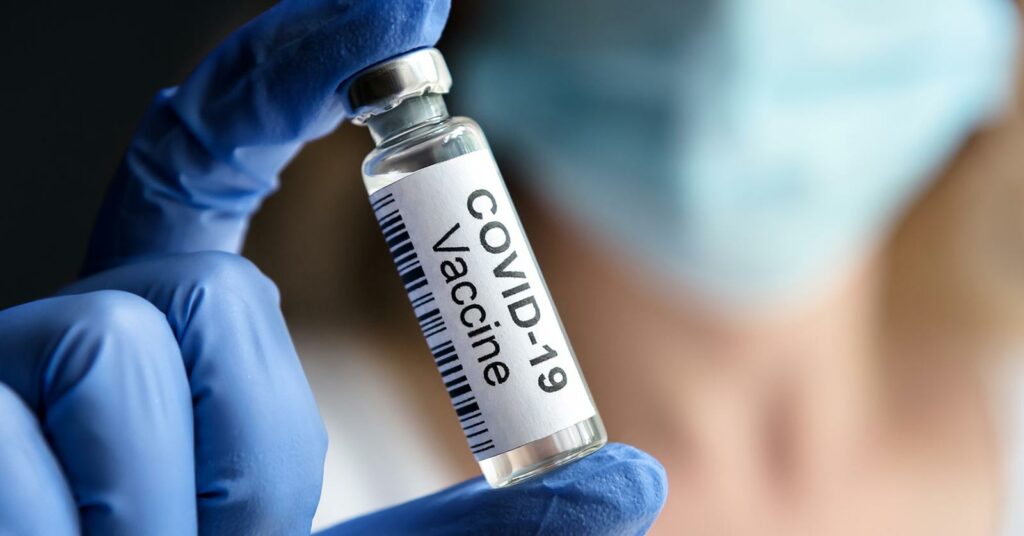
The world is anxiously waiting for access to the COVID-19 vaccine with the hope that a vaccine will put an end to the global pandemic. Vaccines are currently rolling out to the public. Some people are unsure of whether they will take a vaccine or not because of so many unknowns along with a rapid FDA approval process.
Research for Coronavirus Vaccine
Coronaviruses are a family of viruses that cause illnesses such as the common cold, severe acute respiratory syndrome (SARS), and Middle East respiratory syndrome (MERS). COVID-19 is caused by a virus that’s closely related to the one that causes SARS. For this reason, scientists named the new virus SARS-CoV-2.
(Mayo Clinic)
Past research done on MERS and SARS has yielded some valuable information for COVID-19. Researchers used this prior data to get a head start in the process of creating a COVID-19 vaccine.
Challenges in Developing a COVID-19 Vaccine
Weighing the risk of getting a COVID-19 vaccine and possible side effects vs. getting COVID-19 is the big debate. Before using the vaccine on humans, adequate and thorough, but fast testing had to be developed to ensure safety.
Providing Long-Term Protection
Millions across the world have tested positive for COVID-19. Though the chances of re-infection are shown to be less, there have been cases of reinfection. For most, reinfection has been mild, and it could happen any time after days or weeks of the first infection. The world is watching COVID-19 vaccine recipients to know how effective and long-lasting it is.
Development and Distribution Timeline of the COVID-19 Vaccine
The process of developing a safe and reliable vaccine and can take years. The advent of artificial intelligence technology played an integral part in helping get the vaccine to market faster. The government rolled out a support process as “Operation Warp Speed” to let the public know it was top priority.
After developing a vaccine, it is tested normally on animals to check if it works and if it is safe. The testing process could take anywhere between three to six months. The manufacturing and testing processes must follow strict lab guidelines and all necessary safety and quality practices.
The next step is to conduct small phase 1 clinical trials to check how safe it is for humans. Phase 2 involves establishing the formulation and dosage of the vaccines to prove their effectiveness. In phase 3, the vaccine’s safety and efficacy are tested on a larger, diverse group of people. The time to trial was the key to this vaccine being available so quickly.
Artificial Intelligence, Machine Learning and COVID-19 Vaccine Research
You might be surprised to know that local governments were using antiquated fax technology in contact tracing. Forms were handwritten and faxed to a central location for evaluation in identifying high risk cases. A person was required to review the forms. Using a newly developed machine learning program by a Stanford University professor, forms were able to be reviewed at a much faster speed. (Simonite 2020) This greatly helped in identifying those who needed to quarantine.
Data scientists are now aiming AI at some of the coronavirus’s biggest mysteries — why the disease looks so different in children vs. adults, what makes some people “superspreaders” while others don’t transmit the virus at all — and other, lesser questions we have made little headway in understanding. (Cha 2020)
Using artificial intelligence and machine learning in the development of the COVID-19 vaccine allowed scientists to move at a much faster pace than ever before in containment, testing and trials.
Continued Vigilance While We Wait
While we wait for the general population to be vaccinated, continued precautionary measures must remain the top priority. Here is a review of those protective measures.
- Avoid close contact with anyone who has symptoms or is sick. Try and keep a distance of at least 6 feet between others and yourself.
- When you are outdoors, ensure you are wearing a mask or face coverings. This will give you protection, especially in places where it may be challenging to avoid close contact.
- Wash your hands for at least 20 seconds using soap and water.
- Use an alcohol-based sanitizer that contains at least 60% alcohol.
- Avoid touching your nose and mouth. Always cover your nose and mouth with a tissue when you cough or sneeze and dispose of the tissue responsibly.
- If you have symptoms, get tested. Stay home from school, work, or other public places if you are sick.
COVID-19 is a major global health challenge, and the medical community is working hard to disperse the vaccine and treat and contain the virus. Until then, we must stay vigilant and protect ourselves, and our family members from exposure. We will continue to report on vaccine progress and news as it becomes available.
Works Cited
Mayo Clinic. Get the Facts about COVID-19 Vaccines. 12 Dec. 2020,
www.mayoclinic.org/diseases-conditions/coronavirus/in-depth/coronavirus-vaccine/art-20484859.
CDC. “Ensuring the Safety of COVID-19 Vaccines in the United States.” Centers for Disease Control and Prevention, Centers for Disease Control and Prevention, Dec. 2020,
www.cdc.gov/coronavirus/2019-ncov/vaccines/safety.html.
Cha, A. (2020, November 01). Artificial intelligence and covid-19: Can the machines save us? Retrieved December 23, 2020, from https://www.washingtonpost.com/health/covid-19-artificial-intelligence/2020/10/30/7486db84-1485-11eb-bc10-40b25382f1be_story.html
Simonite, T. (n.d.). The Newest Weapon Against Covid-19: AI That Speed-Reads Faxes. Retrieved December 23, 2020, from https://www.wired.com/story/newest-weapon-against-covid-ai-speed-reads-faxes/





